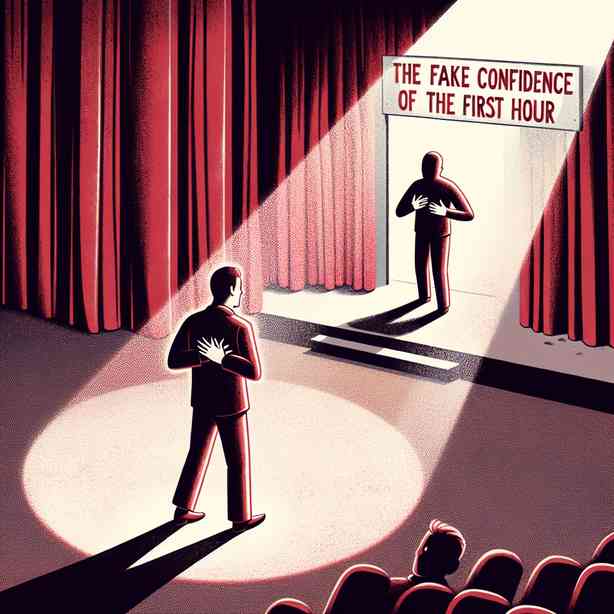
The concept of “The Fake Confidence of the First Hour” delves into the phenomenon where individuals often exhibit an inflated sense of confidence when initiating new tasks or embarking on new experiences. This initial burst of confidence can often mislead not only ourselves but also those around us. Understanding this dynamic is essential for anyone looking to succeed, as it can shape outcomes and influence interactions in significant ways.
When you start a project, for instance, the excitement and novelty can create an illusion of complete readiness and competence. This first hour tends to be marked by naive optimism, where the belief in one’s abilities is disproportionately high compared to the actual skills or preparation that one possesses. This phenomenon can be attributed to various psychological factors, including the Dunning-Kruger effect, where individuals with limited knowledge overestimate their expertise.
As people engage in self-reflection during the initial phases of a task, they often overlook their shortcomings and focus solely on their perceived strengths. This leads to a skewed assessment of their capabilities. For example, when someone begins a new job, they may feel enthusiastic about their qualifications and appear confident in front of their new colleagues. However, this confidence can quickly dissipate as the reality of tasks and expectations sets in.
In the workplace, fake confidence can lead to various consequences. On the one hand, being overly confident at the beginning can help individuals take bold steps and foster positive impressions among their peers and superiors. It can create a perception of assurance that may aid in networking and team collaborations. However, this facade can also backfire when real challenges arise.
The moment reality strikes, many may feel overwhelmed or exposed, leading to a lack of productivity and possibly affecting their reputation. In this light, it’s crucial for individuals to complement their initial confidence with a grounded understanding of their abilities. Rather than projecting an infallible persona, adopting a stance of humility allows for growth and better adaptability in the face of challenges.
Building awareness around this phenomenon can aid greatly in personal and professional development. An important step is to encourage self-doubt, which is not inherently negative; it can be a powerful driver of growth. By acknowledging the limits of one’s knowledge and abilities, individuals can seek out the necessary tools, mentorship, or resources to enhance their skills.
Moreover, the transition from fake confidence to genuine competency requires time and experience. Learning from mistakes becomes a pivotal part of this journey. As individuals navigate through the learning curve, each setback offers valuable lessons that contribute to a more authentic self-assessment in the long term. This process encourages resilience and adaptability, enabling individuals to become more adept in their roles.
It’s also essential to understand the role of external feedback during this period. Engaging in open dialogues with peers and mentors can help calibrate one’s confidence levels. Constructive criticism can illuminate blind spots and provide insights that were previously unrecognized. Therefore, fostering an environment where feedback is welcomed can significantly enhance personal and team outcomes.
In addition to feedback, the evaluation of past experiences plays a critical role in overcoming the limitations of initial confidence. Reflecting on previous successes and failures allows individuals to create a more realistic understanding of what they can achieve. By documenting these reflections, one can establish a trajectory of growth that is informed by experience rather than unfounded confidence.
Moreover, it’s vital to recognize the impact of mindset on our journey. A growth mindset fosters resilience, encouraging individuals to view challenges as opportunities for learning rather than obstacles. This shift in perspective allows for a more sustainable form of confidence, one that is built upon real accomplishments rather than superficial impressions.
In conclusion, while the allure of fake confidence can be enticing during the initial stages of any undertaking, cultivating a more profound understanding of one’s abilities is crucial for lasting success. Embracing humility, seeking feedback, and reflecting on past experiences are all integral components in transitioning from an initial facade of confidence to genuine competence. Ultimately, this journey fosters a more robust sense of self that can navigate the complexities of both personal and professional landscapes. Rather than allowing the fake confidence of the first hour to dictate the course of your endeavors, choose to enable a deeper self-awareness that will serve you well in the long run. By doing so, you can transform that fleeting confidence into a strong foundation for continued growth and success, ensuring that you are not just surviving but thriving in whatever challenge lies ahead.


